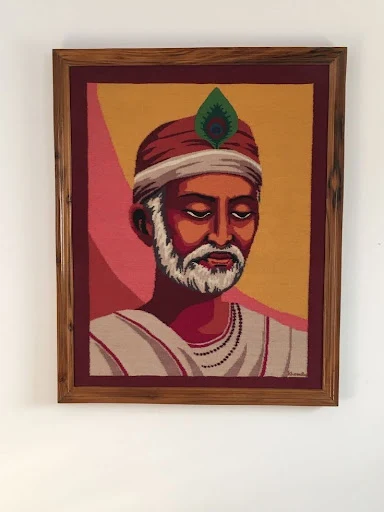Lord Bhairava
The Divine Canine Deity in Hinduism
Hinduism, one of the world's oldest religions, boasts a rich tapestry of deities and divinities, each symbolizing different aspects of existence. Amidst this vast pantheon lies an intriguing and less-known figure, Lord Bhairava, often affectionately referred to as the "Dog God." In this article, we will explore the significance, mythology, and worship of Lord Bhairava in Hinduism.
Lord Bhairava is a unique deity in Hinduism, often depicted as a fierce-looking man with a dog as his constant companion. The dog is an essential part of his iconography, symbolizing loyalty, protection, and vigilance. Bhairava's association with the dog is a powerful metaphor for his role as a guardian and protector of devotees.
The legend of Lord Bhairava finds its roots in Hindu mythology. He is believed to be an incarnation of Lord Shiva, one of the principal deities in Hinduism. The story goes that Lord Shiva assumed the form of Bhairava to punish Lord Brahma for his arrogance. In a fit of rage, Bhairava severed one of Brahma's five heads, signifying the suppression of the ego. However, this act of violence left Bhairava burdened with the sin of Brahmanicide. To atone for his actions, he roamed the earth as a beggar with a dog, seeking redemption.
Lord Bhairava is predominantly worshipped in the form of Kalabhairava, who is considered the chief among the Bhairava manifestations. Devotees believe that by worshipping Lord Bhairava, they can gain protection, inner strength, and spiritual growth. His temples can be found across India, with Varanasi being one of the most revered places of worship.
The worship of Bhairava is often associated with specific rituals and traditions. Devotees offer prayers, flowers, and offerings to seek his blessings. Tuesdays and Ashtami (the eighth day of the lunar calendar) are considered particularly auspicious for Bhairava worship.
Lord Bhairava also holds a significant place in Tantric practices within Hinduism. Tantric traditions view Bhairava as a symbol of the fierce, transformative aspect of the divine. Devotees seek to tap into his energy to overcome obstacles, gain control over their desires, and attain spiritual enlightenment.
Lord Bhairava, the Dog God of Hinduism, is a remarkable and multifaceted deity embodying the qualities of loyalty, protection, and the power to transcend the ego. While less known than some of the major Hindu gods, Bhairava's significance in both mythology and spirituality is undeniable. His worship continues to thrive, offering devotees a path to inner strength, protection, and spiritual growth in the embrace of the Divine Canine Deity.




